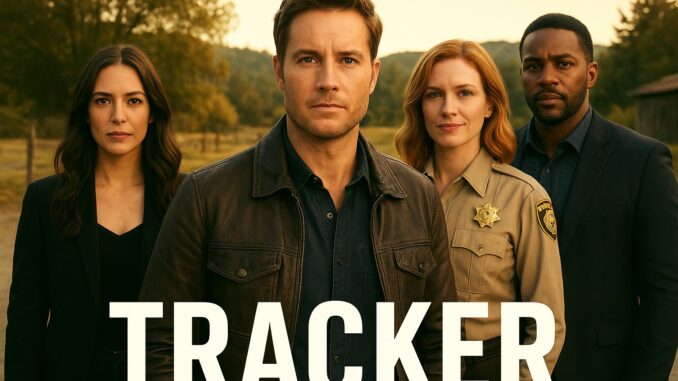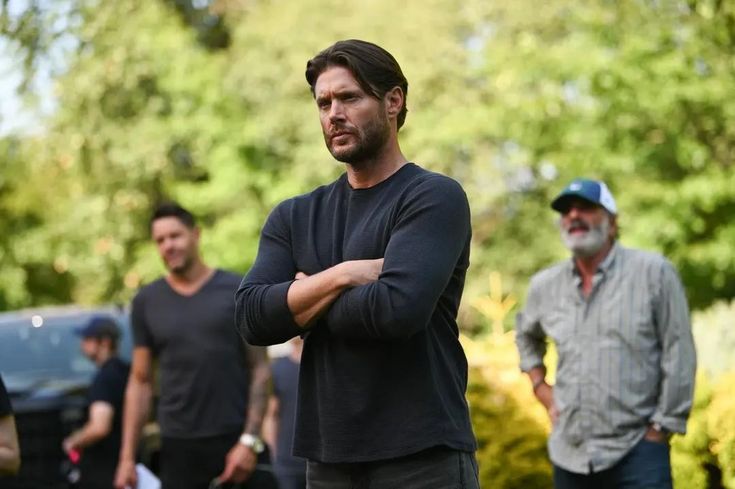
If you’ve been watching Tracker, you already know Colter Shaw is a different breed of hero—half lone wolf, half mystery, and fully irresistible to viewers who love character-driven storytelling. But while fans keep rooting for a long-term partner, a stable team-up, or even a consistent sidekick, the show seems determined to keep Colter on his own.
So why does Tracker avoid giving him a permanent partner? Why does every new face seem temporary, no matter how fun or promising the chemistry is? In this deep-dive, we break down the creative strategy behind Colter’s solo missions, the psychological reasons it works, and why the series thrives on its “lone operator” formula. Let’s unpack the truth.
The Lone Wolf Blueprint That Defines ‘Tracker’
Colter Shaw Is Designed as a Solo Character
From the beginning, Colter’s identity has been built around independence. He’s a reward seeker, not a typical detective or agent working inside a structured team.
His entire ethos is based on being mobile, unattached, and free to chase cases across the map. Giving him a partner would fundamentally change who he is—and that’s something the writers aren’t willing to sacrifice.
The Show Thrives on Unpredictability
A permanent partner creates stability. But Tracker is at its best when everything feels uncertain—new towns, new cases, new dangers, new people.
Keeping Colter solo gives the show endless flexibility:
-
New guest stars
-
New character dynamics
-
New emotional arcs
-
New conflicts
A fixed partner would box the story in.
Why A Permanent Partner Would Hurt the Narrative
Limiting Colter’s Movement Means Limiting the Show
Colter never stays in one place long enough to grow roots. A partner means a location, a base, and commitments—all things his character actively avoids.
The Emotional Distance Is Part of the Brand
Colter keeps people at arm’s length because of his childhood trauma. He’s still processing the loss of his family, the instability of his upbringing, and the truth about his father.
Building a permanent partnership risks healing him too quickly—and emotional slow burns are gold for television.
Adding a Full-Time Partner Would Shift the Spotlight
Tracker is a hero-centered show. The star is Colter, and the narrative is filtered through his lens. A regular partner would change the balance and potentially overshadow or dilute his presence.
Colter’s Past Makes Long-Term Bonds Difficult
Trauma Shapes His Relationships
Because of his father’s paranoia and his turbulent childhood, Colter doesn’t trust easily. Forming an ongoing partnership requires vulnerability, and that’s something he avoids.
His Fear of Attachment Is a Built-In Character Conflict
Attachment means loss. And Colter is terrified of losing what he comes to care about.
The writers use this internal struggle to:
-
Add tension
-
Deepen his complexity
-
Keep viewers emotionally invested
Romance Isn’t Off the Table—But Commitment Is
Yes, Colter has romantic arcs. But they’re intentionally fleeting. Emotional tension keeps audiences captivated—fulfillment would end the chase.
The Show’s Anthology-Like Structure Encourages Change
New Faces Keep Each Episode Fresh
The constant rotation of characters lets the show explore:
-
New communities
-
New relationships
-
New moral dilemmas
A permanent partner would slow that momentum.
Guest Characters Become Highlight Episodes
Some of Tracker’s best hours come from compelling one-episode allies who feel real, meaningful, and memorable. That magic would fade if the same partner were always by Colter’s side.
Behind-the-Scenes Reasons Colter Will Stay Solo
Justin Hartley’s Character Is the Brand
Hartley is the selling point. Audiences tune in for his performance, not for a team dynamic.
Flexibility Makes Casting Easier
No permanent partner = no long-term contracts.
This opens the door for:
-
Recurring fan favorites
-
One-off cameos
-
High-profile guest stars
It also allows scheduling freedom.
The Writers Want Room to Expand the Universe
By keeping Colter unattached, they leave the door wide open for:
-
Spin-off characters
-
Side-story episodes
-
Crossovers
-
Recurring arcs that pop in and out
Fans Love the Lone Wolf Mystery—Even If They Won’t Admit It
Viewers Are Drawn to His Independence
Part of Colter’s appeal is his self-reliance. People connect with characters who walk alone yet choose connection when it truly matters.
The “Will They, Won’t They” Dynamic Is Stronger Without a Partner

Every time a character recurs—Reenie, Bobby, Velma, Lizzy—the internet explodes with theories. A permanent partner would kill that excitement.
Could Colter Ever Have a Partner? Yes—but Not a Permanent One
Expect More Recurring Allies
He might not get a permanent partner, but recurring partners? Absolutely. Characters like Velma and Bobby fill the role without compromising his independence.
Temporary Team-Ups Work Better
Short arcs allow:
-
Strong chemistry
-
Emotional payoff
-
Natural exits
This keeps the story dynamic.
The Show Needs Colter to Keep Moving
The minute someone stays by his side permanently, the show loses its identity.
Conclusion
Colter Shaw is intentionally crafted to be a lone wolf—restless, nomadic, emotionally guarded, and endlessly compelling. Giving him a permanent partner would undermine the DNA of Tracker. It would alter the show’s structure, soften its emotional tension, and close off the constant flow of new characters and storylines that make the series so addictive.
Whether fans want it or not, Colter’s solo path isn’t a flaw—it’s the formula that keeps Tracker thriving. And as long as the show wants to keep us guessing, he’ll walk alone.